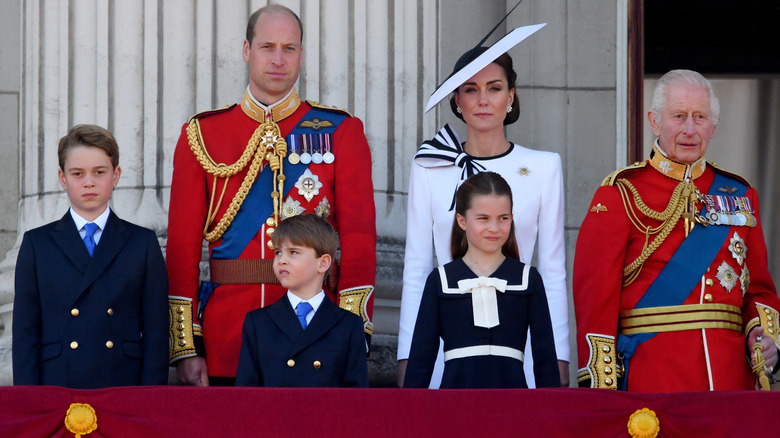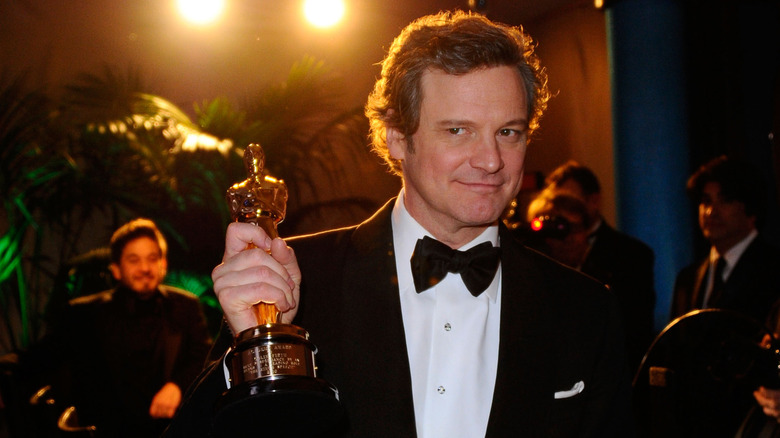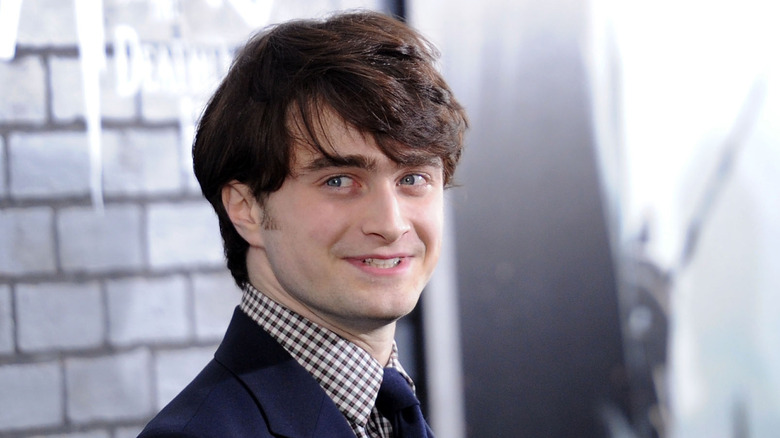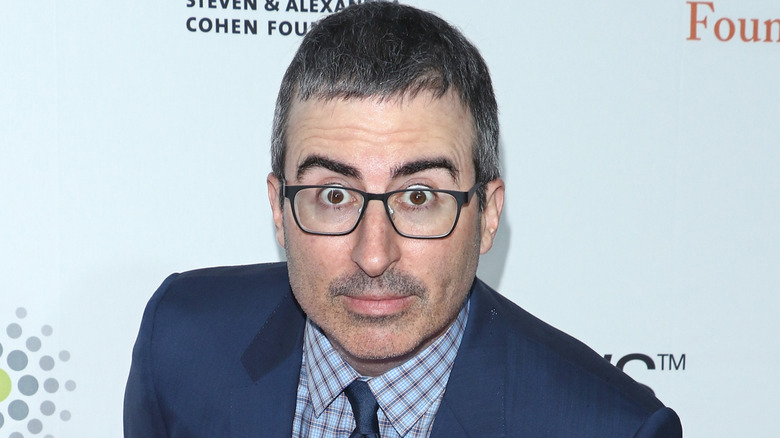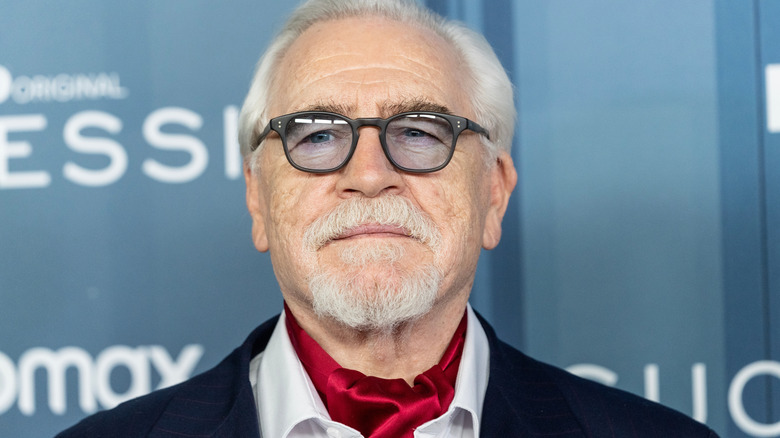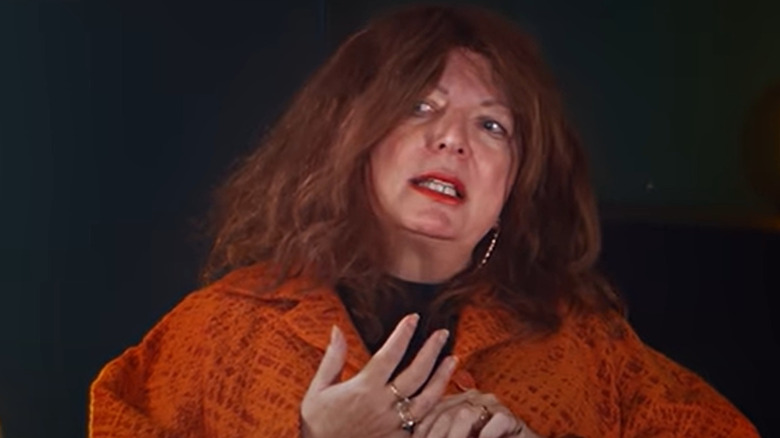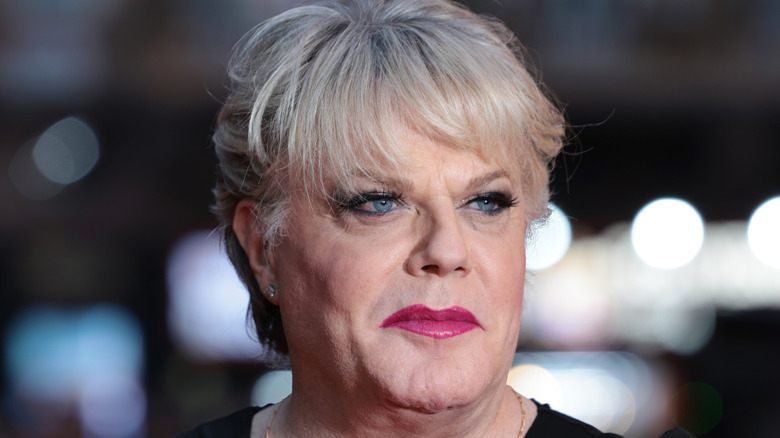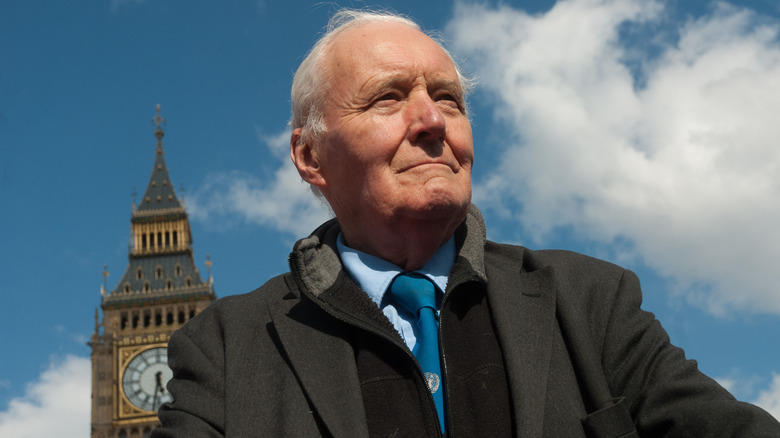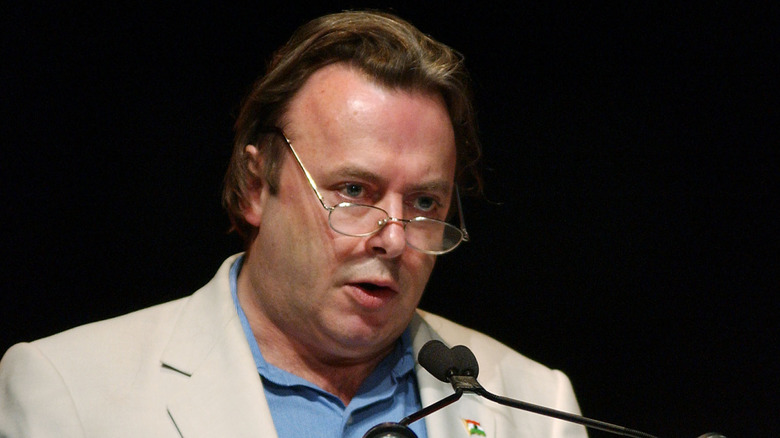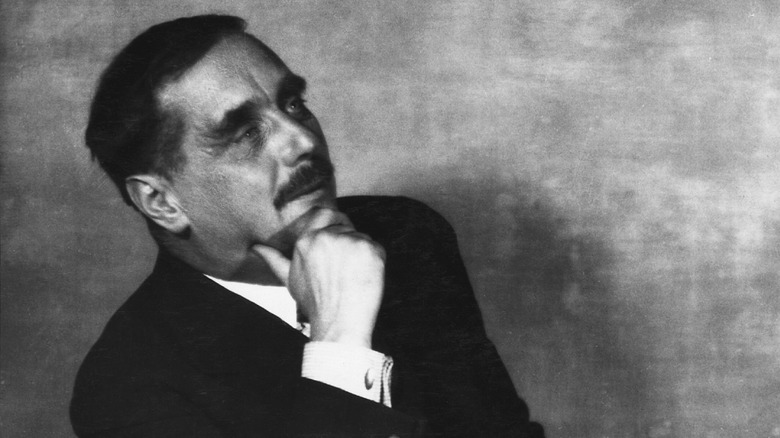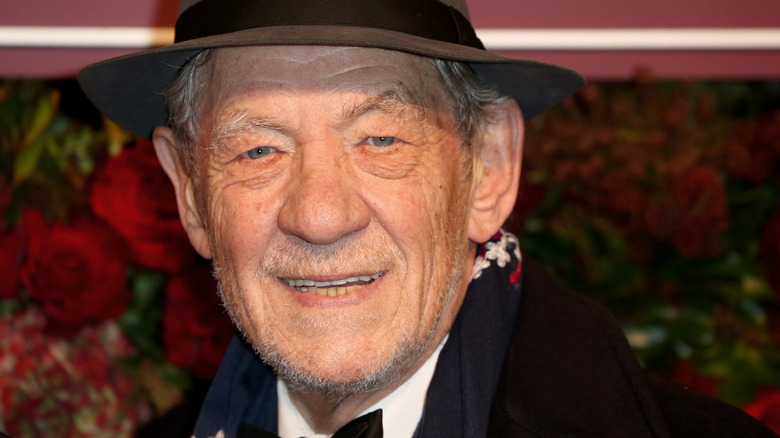Stars Who Can't Stand The British Royal Family
The coronation of King Charles III in 2023 was a fresh opportunity for Great Britain to put on one of its famous displays of state pageantry, even if it was slimmed down from past coronations. Out came the carriages and crowns, the uniforms and ermine, the robes and scepters. But along with the processions, oaths, and symbol-laden trappings, those watching the coronation might have taken in another sight: small groups holding conspicuous yellow signs reading "not my king."
Since the death of Queen Elizabeth II, Britain's most prominent anti-monarchy group, Republic — as in, a republican system where the head of state is elected, not a conservative political party — has boasted of rising numbers in support and resources. They've also pointed to signs that support for the monarchy is falling. There are numbers that back up their confidence; in August 2024, Statista found that just 35% of Britons aged 18-24 were in favor of the monarchy. But the institution retained majority support in every other age group, and the prospect of a referendum that would put the issue to a vote still seems scant for the immediate future, to say nothing of the complicated business that disentangling the monarchy from the British state would be.
But critics of the monarchy are still free to push for its ouster. They're also free just to criticize and mock it. And it's not just campaigners who go after the crown. A small host of writers, politicians, and performers have taken shots at the British royal family over the years. Here are just a few of them.
Colin Firth
It's tempting to conflate actors with their roles, particularly a role that wins them widespread acclaim. Colin Firth was a well-established actor with dozens of credits to his name by 2010, but his performance as King George VI in "The King's Speech" brought him rave reviews and an Oscar. It was a role Firth took seriously, having dealt with a minor vocal disability in his own past due to an injury to his vocal chords. His preparation for the role, recounted in an interview with the British Stammering Association, was excerpted as an article in The Guardian on the difficulties and prejudices faced by stammerers. Firth ended his answer by describing George VI as a hero.
And yet Firth is, if not hostile to constitutional monarchy, openly ambivalent about it. In the run-up to his Academy Award win, Firth said to CNN (via The Telegraph) that he admired the environmental work done by the then-Prince Charles and was complimentary about the royal family. He also reaffirmed his admiration for the royal he had just played. But when pressed about his feelings toward the monarchy as an institution, Firth expressed discomfort with "unelected bodies" and said that voting was "one of [his] favorite things." Though he never explicitly branded himself a republican, headlines generated by the interview were quick to award him the label.
Daniel Radcliffe
What role, if any, the British monarchy plays in J.K. Rowling's wizarding world has never been established. She's never said or written if kings and queens are informed about the existence of wizards the same way prime ministers are, whether the wizarding world recognizes the monarchy as a head of state, or if the English crown's connections to alchemy matter to modern British wizards. In the real world, members of the royal family have expressed fondness for the books. The films, and their home studio, have been the respective subject and site of royal events.
But Harry Potter himself is not a fan of the royals, or at least the institution of monarchy. Since the time he was still a teenager performing in the film series, Daniel Radcliffe has been open about his republicanism. "I am not a royalist," he told The Daily Beast in 2009. "Not at all. I am definitely a republican in the British sense of the word. ... I'm proud proud proud of being English, but I think the monarchy symbolizes a lot of what was wrong with the country." He singled out the monarchy's embodiment of the British class system, though he added, "I have nothing against the royals as people. I've never met them."
Radcliffe still hadn't met any royals except the Duchess of York by 2020, as he told Paley Front Row (via YouTube). He was promoting his role as a royal in an upcoming comedy, and he said that "even English people who love the monarchy, a lot of them can still acknowledge that it is ... a crazy institution and ... very fertile ground for comedy."
John Oliver
Comedian John Oliver has never been shy about critiquing his home country. Since the launch of his HBO series "Last Week Tonight," he's devoted several episodes to goings-on in Britain that he dislikes, be it the Scottish independence referendum, the Brexit vote, or the 2024 U.K. elections. The fallout from Brexit has been an ongoing source of material for Oliver. But he's also turned his comedic fire on the British monarchy.
Oliver used nearly his entire half-hour on the monarchy in a November 2022 episode of "Last Week Tonight" (via YouTube) following on from the death of Queen Elizabeth II. He spotlighted chants of "Lizzie's in a box" sung after her death, described King Charles III as "a man whose face answers the question: What if two cousins had a kid," and asked what point the monarchy had anymore in Britain or the Commonwealth realms. Oliver also castigated the monarchy for acting as the symbolic head of institutions connected to various scandals and atrocities throughout the history of the British empire. He ended by accusing the institution of "[hiding] behind the convenient shield of politeness and manners" that might obstruct serious appraisal.
As serious as his show can get, Oliver has always maintained that he's a comedian, not a journalist. When it comes to the royal family, he's shown that by going for low-hanging fruit as well as long-form critique. Appearing on "Watch What Happens Live" in 2024 (via Vanity Fair), he seized on the conspiracy theories surrounding Kate Middleton to joke: "There's a nonzero chance she died 18 months ago."
Brian Cox
Advanced age has been kind to Brian Cox. His performance as Logan Roy in "Succession" has brought him a new level of fame to cap his long and distinguished career on the stage and screen. With his increased profile has come more interviews. And in his interviews, Cox has shown himself to be an ornery sort, more than happy to detail the people, performances, and institutions he doesn't like.
One of those institutions is the British monarchy. Cox has other issues with specifically British aspects of the modern U.K. — he's for Scottish independence — but he went into his grievances with the monarchy in an interview with Haute Living. "In my opinion, we shouldn't have a monarchy," he said. "It's not viable; it doesn't make any sense. It's tradition and all that, they say. I say, 'F*** it! Move on!'" In another interview with Radio Times (via The Standard), Cox called the monarchy "moribund" and reiterated that he didn't think it was worth preserving.
While venting about the monarchy as an institution, Cox expressed sympathy for Prince Harry and Meghan Markle's ongoing tensions with the royal family. In his Radio Times interview, he even pushed back on the way Haute Living reported his comments about Harry and Meghan, insisting that he was misquoted when he said, "[Meghan] knew what she was getting into, and there's an ambition there clearly as well." But Cox did accept a CBE (Commander of the Order of the British Empire) appointment from the throne in 2002 for his sister's sake — she was a devoted monarchist.
Suzanne Moore
Suzanne Moore is a sharp, sometimes acidic journalist. In the last few years, that's pulled her into controversy. When Moore, a longtime contributor to The Guardian, wrote in support of single-sex spaces, it set off a storm of criticism. Some letters to the editor were sympathetic to Moore's article, but others considered her discriminatory against trans people. Some branded her as transphobic. Moore ultimately left The Guardian in 2020, putting the blame for her departure on censorious bullies in the editorial department.
Before her departure, however, Moore was comfortably in-step with the editorial position of The Guardian on at least one issue: abolition of the monarchy. Moore considers the perpetuation of the monarchy an impediment to Britain moving past its days of empire and its progress into what she named a "mature democracy" in a 2019 article. "Even at 14," she wrote, expressing bafflement that monarchism persisted, "I assumed most people would not want to live in the utterly infantilized state of being a subject."
At the time Moore penned her article, the scandals of Prince Andrew and his disastrous BBC interview were fresh in Britons' minds. Of Andrew, Moore wrote that "his sin was not his inhumanity, but giving an interview about his inhumanity. Remember that when you start defending his mother." She also argued that criticism of Meghan Markle was racially motivated.
Eddie Izzard
Call her Suzy Izzard or Eddie Izzard — she prefers the former but is comfortable with the latter and still uses it professionally. Use male or female pronouns to describe her — she prefers female but doesn't object to male (she considers herself gender-fluid as well as trans). Call her a comedian or a politician — Izzard's claim to fame is in comedy, but she's attuned to politics and ran an ultimately unsuccessful campaign in 2023 to be Labour's candidate for an open seat in Parliament.
Just don't call her a monarchist. Izzard has made the monarchy a target of her comedy throughout her career. In one routine (via YouTube), she was particularly caustic about royal marital practices. She called Queen Victoria "one of our more frumpy queens" before adding that "they're all frumpy, aren't they? Because it's a bad idea when cousins marry!"
In a more serious interview during her political campaign, Izzard affirmed her opposition to the monarchy and to the idea of hereditary power in general. At the same time, she expressed sympathy for King Charles III. "I do think he's had the patience of a saint waiting to be king," said Izzard. She also praised Charles' commitment to environmental causes and expressed hope that the king would continue to advocate for worthy causes from the throne.
Tony Benn
Some stars sing, some act, some write, and some are stars in the political sphere. For decades, Tony Benn was a hero of the British left. The son of a lord, born into affluence, Benn fought a yearslong battle just to renounce his inherited title so that he could keep serving in the House of Commons. As an MP, Benn transformed himself into the leader of the Labour party's far-left wing. He served in several Labour governments in various roles, wrote extensively on the value a socialist government could bring to Britain, and served as a vocal member of the opposition to both Margaret Thatcher's government and Tony Blair's New Labour.
Unsurprisingly, a man so firmly rooted in the left wing of British politics that he gave up his own title was not a fan of the monarchy. He penned numerous articles criticizing the crown and its role in British society. Even the nominal role the monarch plays in forming governments and dissolving Parliament, Benn once argued in The Guardian, held Britain back from being a full democracy. While acknowledging that the crown wielded no practical power, Benn wrote that the exercise of ostensibly royal authority gave too much power and control to the office of the prime minister.
The PM's use of royal prerogative, in everything from maintaining control of government to dispensing honors, was a recurring theme in Benn's critiques. He called it a corrupting influence. His commentary on the monarchy drew admiration from some in Britain, who felt that other politicians hid republican sentiments where Benn owned them.
Christopher Hitchens
Christopher Hitchens was never shy with his opinions. The journalist and polemicist was known for his wit, his ego, his excessive drinking and smoking, and his pointed attacks on figures and institutions ranging from organized religion to Bill Clinton. He wrote, talked, and critiqued right up until his death from cancer in 2011. And among his targets was the institution surrounding the head of state of his home country: the British crown.
Hitchens wrote in The Guardian in 2000 that he grew up in a culture of deference to the monarchy; his parents and teachers were devoted to it. But there was no trace of that sentiment in him by the time he put pen to paper, the monarchy having just come off then-Prince Charles's ugly divorce and Princess Diana's death. "The Windsor clan still compels attention even from the reluctant or the sated," he wrote. "It does so either by pervading the showbiz media, or by occupying the no man's land that separates us from the constitutional future."
Hitchens rejected the longstanding notion of the separated "dignified" and "efficient" aspects of British government and argued that, even if they did matter, the royal family and its scandals wasn't dignified. He expressed astonishment when his adopted home of America displayed such fascination with the monarchy, and when he became an American citizen in 2007 (via YouTube), he made it a point to say that he renounced "that slobbering dauphin, Prince Charles." But Hitchens stopped short of calling for legislative abolition of the monarchy, instead arguing that Britain should gradually "grow out of it."
H.G. Wells
Today, H.G. Wells is primarily remembered for his science fiction stories — "The Time Machine," "The War of the Worlds," and "The Island of Doctor Moreau" are classics of the genre. But he was a prolific author who ventured into a wide range of material. In his lifetime, he was also known for his comic novels, his work as a historian, and his support of British socialism. He wrote extensively on his concerns for British society, first from an optimistic and forward-looking perspective and then from an increasingly grim one after the First World War.
Among Wells' areas of concern was the British monarchy. In "Mankind in the Making" (via Project Gutenberg), he opined at length about what he saw as the institution's deficiencies in a chapter titled "The New Republic." He lamented the lack of republican sentiment in Britain, the British Empire, and even in the United States. Wells rejected the American presidential system as an alternative but advocated for blending aspects of American and British parliamentary democracies to replace the hereditary principle.
Wells' writing and advocacy for republicanism brought him pushback from others in the press. They also inadvertently inspired a moment of royal wit. During World War I, there was a minor uptick in republicanism, and Wells seized on the momentum in 1917 to declare that Britain should shake off its "alien and uninspiring Court" — "alien" referring to the royal family's German roots (via Time). When King George V heard about Wells' remark, he snapped to a confidant: "I may be uninspiring, but I'll be damned if I'm alien."
Ian McKellen
Gandalf the Grey is perhaps Ian McKellen's most famous role to mass audiences, and Gandalf is quite committed in "The Lord of the Rings" to seeing the throne of Gondor restored. The part helped to make McKellen a beloved icon of movie fans on top of his distinguished reputation as a British stage actor. But in real life, McKellen is decidedly less monarchial than the gray wizard.
Speaking to The Telegraph in 2024, McKellen, who was knighted by Queen Elizabeth II in 1991, had some choice words for the deceased monarch. He said that, whenever he encountered her, she was dismissive. When he received an additional honor in 2008 and the queen presented it to him, McKellen said that she asked him, "Does anyone still actually go to the theater?" McKellen was not amused. "That's bloody rude when you're giving someone a medal for acting," he said. "It meant, 'Does anyone care a f*** about you because I don't. Now off you go!'"
Besides accusing the queen of bad manners, McKellen opined that she had gone "quite mad" at the end of her life. He also speculated that Prince Philip and King Charles III were made unhappy men by being confined to royal life. "I've been in public life a bit, but these people are in prison," he said. "They can't do anything normal. Can you imagine having to be nice to everyone you talk to?" McKellen was reading Prince Harry's "Spare" at the time of his interview and expressed sympathy for the prince, but he also said that Harry was "probably not bright enough ... to really help himself."
